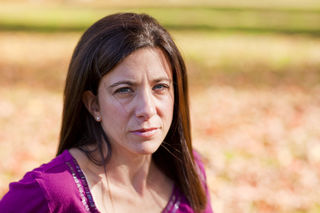Child Development
7 Things an Unloved Daughter Longs for as an Adult
3. True self-confidence.
Posted October 11, 2018 Reviewed by Hara Estroff Marano

While there are meaningful differences in every unloved daughter’s story, there are nonetheless broad commonalities. Understanding them and seeing the role each plays in your own life can be the first of many steps towards healing.
Some of these are consciously perceived, though we may not put them in context and connect them to childhood experiences for years and years. Anecdotally at least — from my research and interviews over the last 20 years — recognition of how childhood experiences affect the present usually doesn’t begin until a woman is in her late 30s or 40s, and often later.
If you’ve had a difficult childhood and felt under the thumb of a controlling, combative, or narcissistic mother, young adulthood brings with it a sense of opportunity as you literally get out from under by moving. Alas, the reality is, chances are good that you’re not seeing how much emotional baggage accompanies you on the trip out. Why is recognition so slow?
The barriers that prevent us from seeing clearly
While you may be conscious of how lousy your childhood treatment made you feel, chances are good that you cannot see its effect on you; most of the behaviors we adopt to get through are unconscious. Additionally, there are other forces at play that prevent you from recognition:
- You’ve normalized your childhood experiences.
- You like thinking that the past is the past, and you’re free.
- You’re not ready to act or react to your childhood treatment.
- You want to be like everyone else. And you are ashamed of your childhood.
- You’re afraid your treatment was justified, and it’s all your fault.
- More than anything, you want your mother to love you. Maybe she will. Soon?
- Your alternating hope and denial keeps you stuck.
What may prompt an individual’s recognition
Women back into discovery more often than not. Sometimes it becomes clear in therapy, but usually she’s gone into therapy to explore her current unhappiness (e.g., failed relationships, difficulty connecting or achieving goals, and other ancillary problems), and the connection to childhood emerges; that said, many daughters have commented that they were in therapy for years without ever tracing the problems of the present back to their roots.
For some, caring relationships in adulthood highlight the abusive or withholding nature of their childhood treatment. Others come to the realization, because someone points it out to them. For some, becoming a mother shines a light. Some finally see when their mothers treat their children as they were treated or when, despite efforts to set boundaries and rules, their mothers continue to verbally abuse them.
And then there’s just readiness. A daughter sees because she’s finally ready to see, because some internal tipping point is reached. This sounds mystical, but as I explain in my book, Daughter Detox: Recovering from an Unloving Mother and Reclaiming Your Life, it is the slow pace of revelation.
The things the unloved daughter longs for in adulthood
Again, these are broad generalizations, and not every unloved daughter will necessarily feel deprived of every single one. But the chances are good that if you were unloved in childhood by your mother, criticized or marginalized, made to feel less than or ignored, many of these deep-rooted longings may coexist with and contradict all manner of success and achievement. That’s the power of these early experiences; the ways in which they may continue to shape us aren’t necessarily rational and can be very counterintuitive.
1. A sense of belonging
This is perhaps the most common and elusive effect: feeling like an outsider, shut out, with her nose pressed against the glass of a store everyone else seems to have access to. That feeling may coexist with a stable and emotionally nurturing marriage and partnership, close ties to children of her own, and a circle of friends. It’s like an overturned can of stain that seeps into and discolors all the good things in life.
2. Validation of her thoughts and feelings
Until she is fully healed, the unloved daughter may feel deep-rooted insecurities about the validity of her thoughts and perceptions; many daughters who were mocked, told they were too sensitive, or were actively gaslighted by their mothers or other members of their family of origin have internalized these messages, and they actively wonder if their view of the world isn’t skewed in important ways. That may make them vulnerable to manipulation or control in relationships, but it will also facilitate not speaking up or silencing themselves when there’s tension or disagreement. The working assumption may always be that, somehow, she’s gotten it wrong, or that she’s too sensitive after all.
3. True self-confidence
Despite her achievements in the world, the unloved daughter may be dogged by feeling as if she’s faking it, and that sooner or later, her luck will run out, and she’ll be found out. This is actually common enough that it has a name: The Imposter Syndrome. (For my piece on it, go here.) Her anxiety about her own performance and her inability to respond appropriately to tension or disagreement may undercut her confidence in herself at every turn. She may over- or under-react intellectually and emotionally. More likely than not, when things go wrong, she’ll revert to self-criticism, the habit of blaming missteps on fixed character flaws.
4. Emotional balance
This is what I call “The Goldilocks problem” in my work. One of the largest deficits experienced with a mother who is either unreliably attuned to her infant or completely ignores her child’s signals is emotional regulation; children with insecure attachment styles don’t know how to manage painful emotions and end up either emotionally flooded or walled-off from their feelings. That’s why I call it the Goldilocks problem; remember how, in the House of the Three Bears, Goldilocks has trouble finding things that aren’t either too hot or too cold, too big or too small, but just right? That’s the emotional thicket the unloved daughter finds herself when she’s in a situation that induces stress or intense emotion.
The good news is that you can actually learn how to name and regulate your emotions; you’re not doomed either to live behind high walls or on an emotional flood plain.
5. Her mother’s love
It’s hard to overstate the power of this primal, hard-wired need, which doesn’t seem to have an expiration date. This isn’t a rational longing, of course; it may absolutely co-exist with a daughter’s real-world action of cutting her mother out of her life as well as with her mother’s death. The more the daughter heals and begins to love herself and feel self-compassion, the smaller the hole in her heart becomes. It never disappears completely, but in time, its context changes so that, unless you remember it’s there, you can barely see it.
6. To make sense of the past (and disconnect it from the present)
Most daughters find it difficult to own their narratives of childhood, in part because of the cultural shame in admitting your mother wasn’t loving and in part because the myths of motherhood — that women are by nature nurturing, and that all mothers love their children — make it hard to get support. Yet understanding the past and how it shaped you is key to moving forward to a healthier place, as well as insuring that you don’t repeat the patterns of behavior you learned. It takes time and effort to connect the dots, and the experience may be painful at first, but necessary.
7. Confirmation of how she’s changed
Many unloved daughters remain burdened by childhood and, of all the things she longs for, is a real recognition that she’s no longer trapped in her childhood room by old habits of thinking and feeling. It’s normal to feel impatient or discouraged, because this is a long journey with setbacks and missteps, but when it finally comes, it is a revelation. A reader of mine sent me a photograph of herself now and one taken two years earlier, writing that “The burden of the past you write about is more literal than not. Look at my shoulders!” Indeed, she was finally standing tall.

Healing from a toxic childhood is hard work, but there will come a moment when there’s little you still long for. Really.




